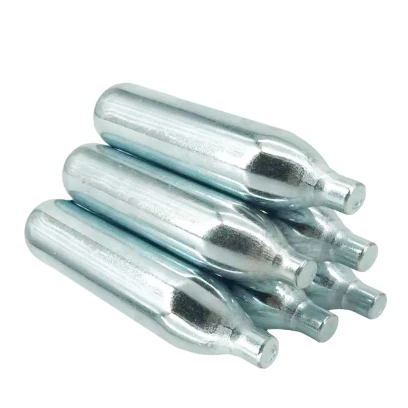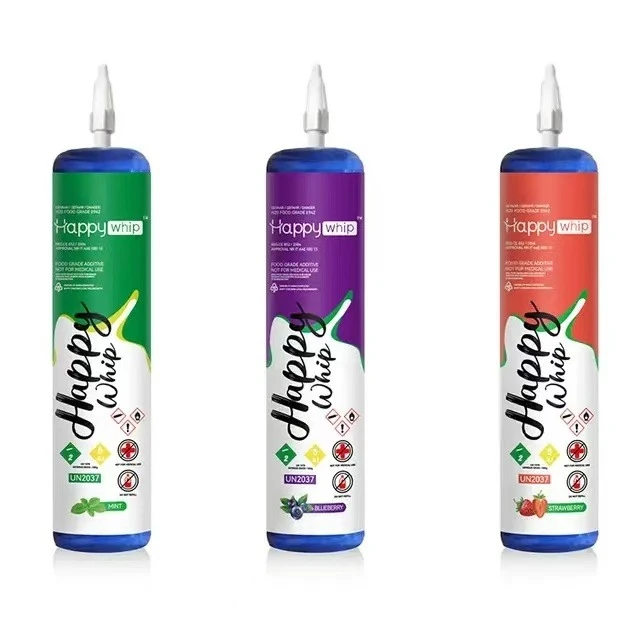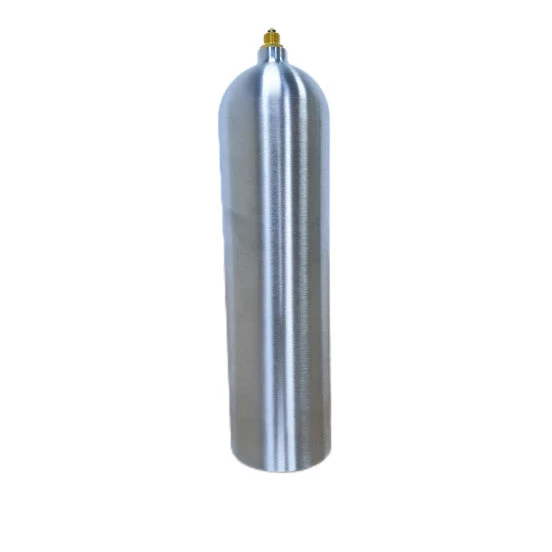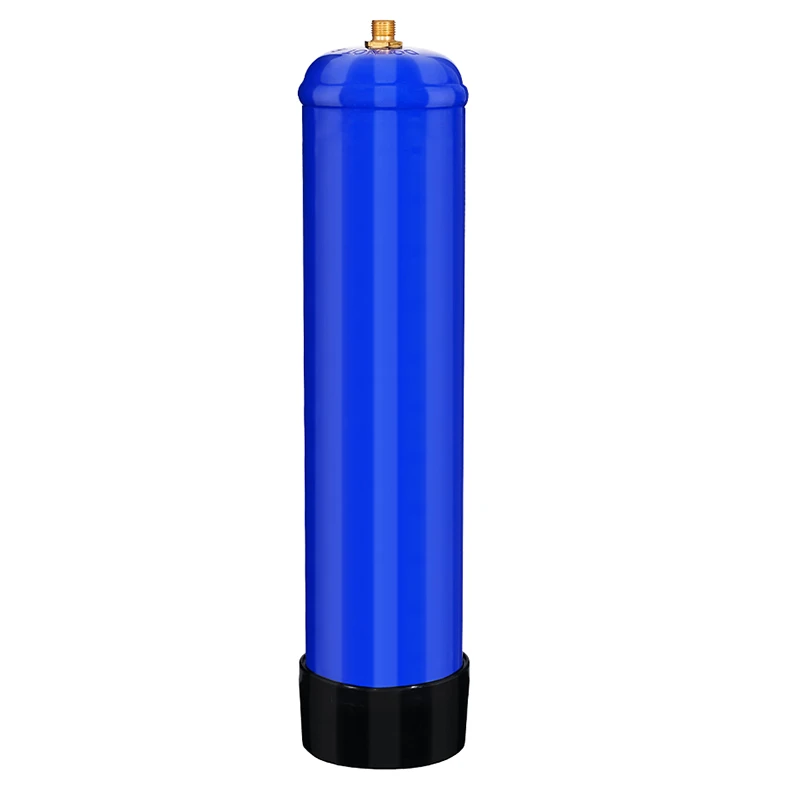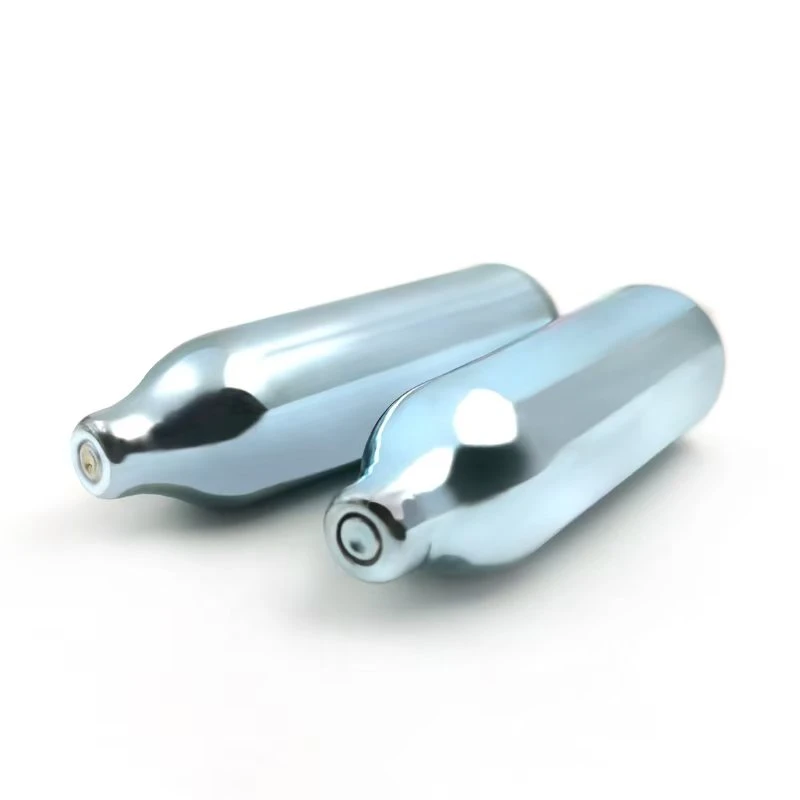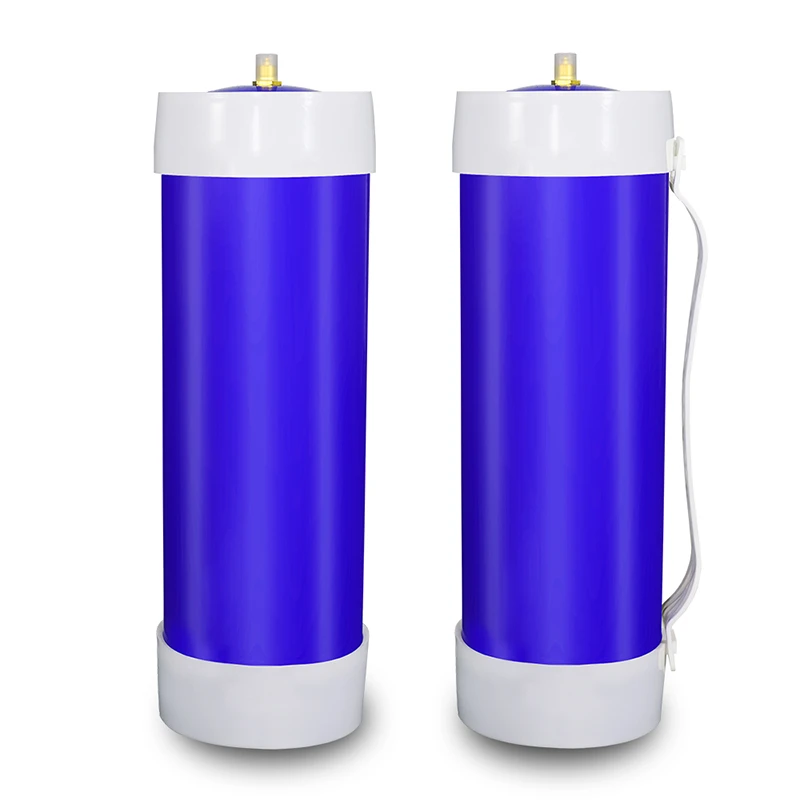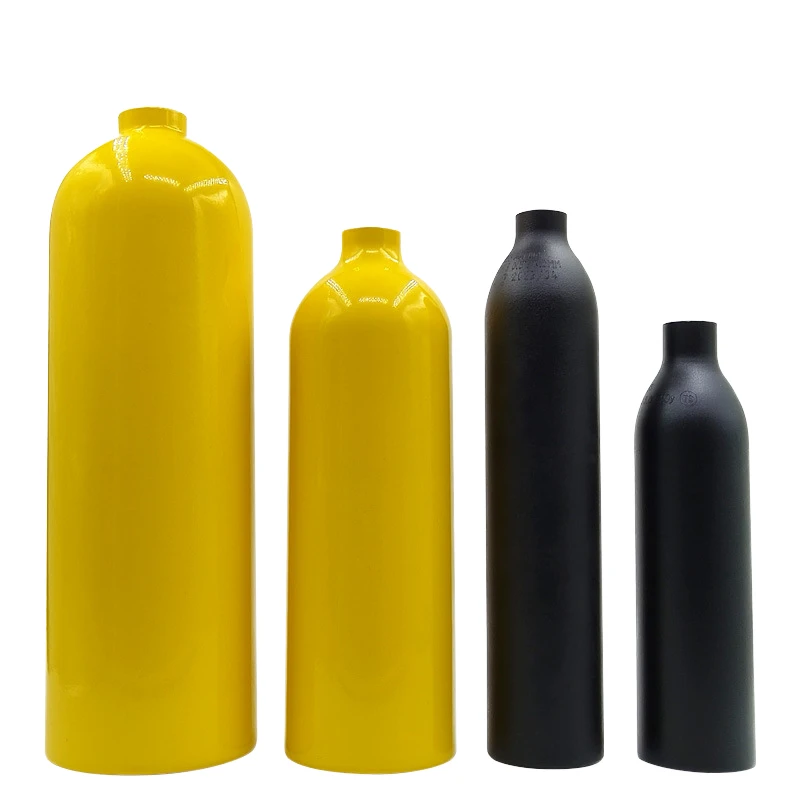
Ethylene Gas Cylinder for Sale | High Purity & Top Safety
Your definitive resource for understanding the technical specifications, diverse applications, and superior quality of industrial and agricultural ethylene cylinders. Discover why Whipway is the trusted partner for your gas containment needs.
Explore Our ProductsUnderstanding Ethylene (C₂H₄): More Than Just a Gas
Ethylene (IUPAC name: ethene) is a simple hydrocarbon with the formula C₂H₄. It's a colorless, flammable gas with a faint "sweet and musky" odor when pure. While it's a fundamental building block in the chemical industry, its role extends far beyond manufacturing. To safely harness its potential, a robust and reliable ethylene gas cylinder is not just a container111 but a critical piece of safety and process equipment.
The global ethylene market is projected to grow significantly, driven by increasing demand for polyethylene and other derivatives. This trend underscores the importance of high-quality storage solutions like the ethylene cylinder to ensure safety, purity, and efficiency across the supply chain.
What is Ethylene Used For?
Ethylene is one of the most widely produced organic compounds in the world. Its applications are vast and critical to modern life:
- Polymer Production: Over 60% of global ethylene is used to produce polyethylene, the world's most common plastic, used in everything from packaging films to water pipes.
- Agriculture: As a natural plant hormone, ethylene gas is used commercially to control the ripening of fruits like bananas, tomatoes, and citrus.
- Chemical Synthesis: It's a precursor to vital chemicals like ethylene oxide (used for sterilization, creating an ETO gas cylinder), ethylene glycol (antifreeze), and ethylbenzene.
- Welding and Cutting: High-temperature oxy-ethylene flames are used for metal cutting, welding, and high-velocity thermal spraying.
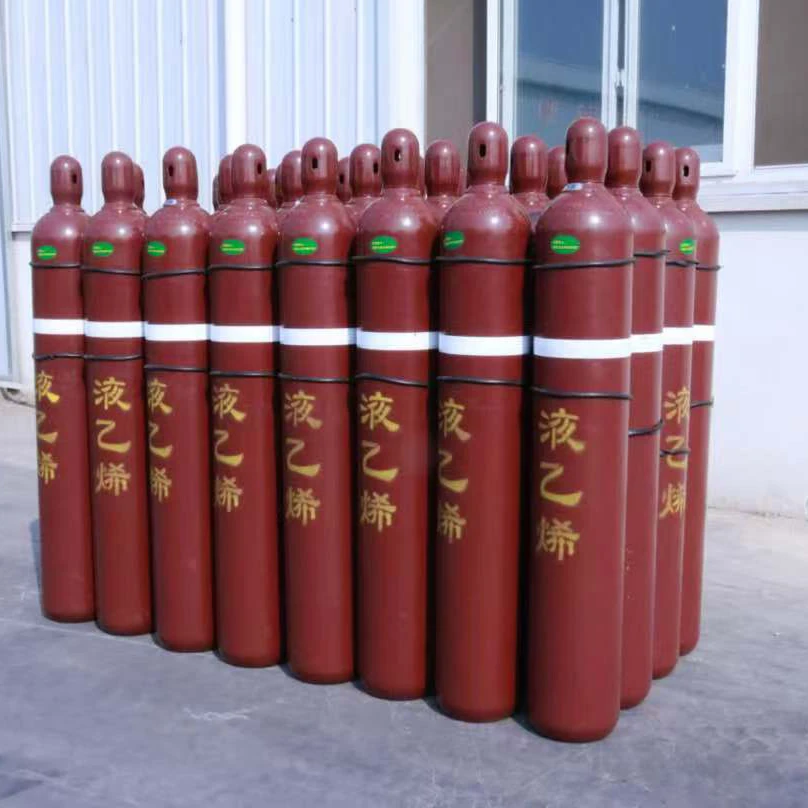
Is Ethylene Harmful to Humans? A Safety Deep-Dive
This is a critical question for anyone working with the substance. According to the Occupational Safety and Health Administration (OSHA) and the National Institute for Occupational Safety and Health (NIOSH), ethylene is primarily considered a simple asphyxiant. This means in high concentrations, it can displace oxygen in the air, leading to dizziness, unconsciousness, and in extreme cases, suffocation. It is also highly flammable and poses a significant fire and explosion risk. Therefore, handling requires strict adherence to safety protocols, proper ventilation, and the use of certified, leak-proof cylinders. A properly manufactured ethylene gas cylinder is the first line of defense in mitigating these risks.
The Heart of Quality: Manufacturing Our Ethylene Gas Cylinder
The integrity of an ethylene cylinder is paramount. It’s not merely a container111; it's a precision-engineered pressure vessel designed for years of safe, reliable service. Our manufacturing process adheres to the most stringent international standards, including ISO 9809 and DOT-3AA, ensuring every cylinder meets and exceeds safety and performance expectations. Here’s a look at our meticulous manufacturing journey:
Raw Material Selection
Process begins with certified seamless steel pipes (e.g., 34CrMo4, 37Mn) inspected for chemical composition and physical properties.
Hot Spinning & Forging
The pipe is heated and formed into its cylindrical shape with a seamless base through advanced hot spinning technology, ensuring structural integrity.
Controlled Heat Treatment
Cylinders undergo quenching and tempering, a critical heat treatment process that imparts the necessary strength, hardness, and ductility.
Precision CNC Machining
The cylinder neck is threaded with high-precision CNC machines to ensure a perfect, gas-tight seal with the valve assembly.
Hydrostatic Testing
Every single cylinder is subjected to a hydrostatic pressure test (e.g., at 250 bar for a 150 bar cylinder) to verify its strength and elasticity.
Surface Preparation & Coating
Internal and external shot blasting followed by a durable powder coating or paint provides excellent corrosion resistance and a long service life.
Valve Installation & Leak Test
High-quality valves (e.g., CGA 350) are installed, and the entire assembly is tested for leaks using sensitive helium mass spectrometry.
Final Inspection & Stamping
A final visual and dimensional check is performed. Each cylinder is stamped with its unique serial number, specs, and certification marks (ISO/DOT).
Quality Assurance Certification
The cylinder is certified and documented, ready for filling and dispatch, complete with a comprehensive quality record for full traceability.
Technical Specifications: An In-Depth Look
Understanding the technical parameters is crucial for selecting the right ethylene gas cylinder for your application. Below is a detailed table outlining the typical specifications of our high-pressure seamless steel gas cylinders. Please note that custom configurations are available to meet specific project requirements.
| Parameter | Specification | Industry Significance |
|---|---|---|
| Product Name | High-Pressure Seamless Steel Ethylene Gas Cylinder | Denotes the construction type and intended use for high-purity ethylene gas. |
| Applicable Standards | ISO 9809-1 / ISO 9809-3 / DOT-3AA / TPED | Ensures the cylinder meets international safety, design, and manufacturing regulations for transport and use. |
| Material | 34CrMo4 / 37Mn (Chromium-Molybdenum Steel) | Provides an optimal balance of high tensile strength, toughness, and resistance to hydrogen embrittlement. |
| Water Capacity | 10L to 100L (Typical range; custom sizes available) | Determines the volume of gas the cylinder can hold at its service pressure. |
| Working Pressure (WP) | 150 bar (2175 PSI) / 200 bar (2900 PSI) | The maximum pressure the cylinder is designed to safely hold during normal service. |
| Test Pressure (TP) | 250 bar (3625 PSI) / 300 bar (4350 PSI) | The pressure at which the cylinder is tested (typically 1.5x or 1.67x WP) to verify its structural integrity. |
| Valve Type | CGA 350 (Standard for Ethylene in North America) / BS341 / DIN 477 | Ensures compatibility with filling equipment and regulators. Custom valve options are available. |
| Tare Weight | Varies by capacity (e.g., 50L cylinder ≈ 50-55 kg) | The weight of the empty cylinder, crucial for logistics and safe handling calculations. |
| Service Life | 15-20 years (subject to periodic inspection) | Indicates the expected operational lifespan with proper maintenance and requalification. |
| Applicable Industries | Petrochemical, Agriculture, Medical (for ETO), Welding, R&D | Highlights the versatility of the product across various high-stakes sectors. |
The Whipway Advantage: Why Our Ethylene Cylinder Stands Out
In a market with varying quality, choosing the right supplier is critical. At Whipway, we build our reputation on tangible advantages that translate to better safety, performance, and value for our clients. The discussion around ethylene gas cylinder price often overlooks the total cost of ownership, where reliability and longevity play a key role.
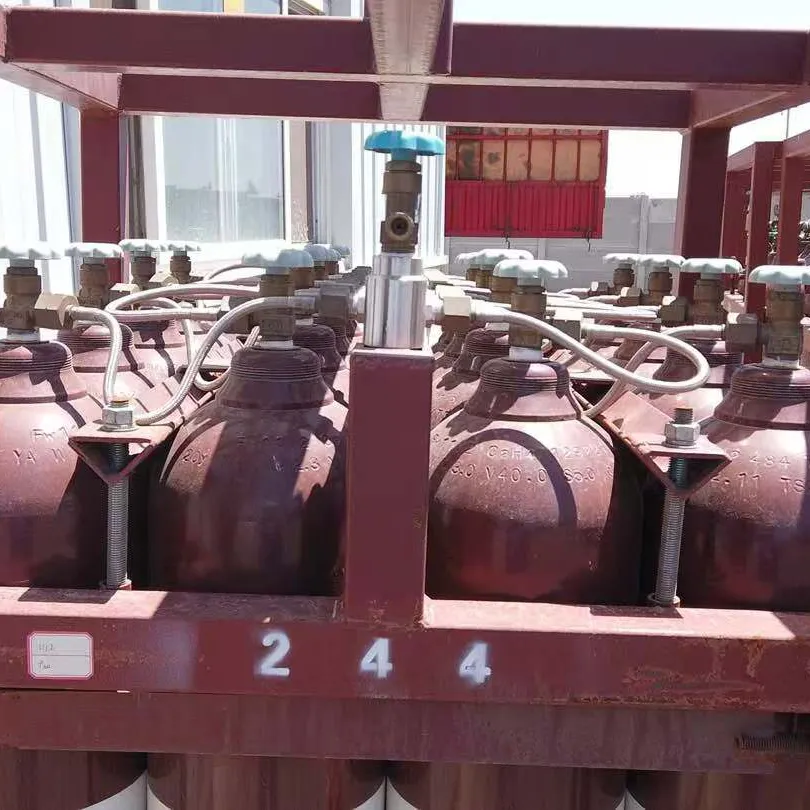
Key Differentiators:
- Superior Material Purity: We exclusively use high-grade 34CrMo4 steel with verified chemical composition, minimizing impurities that can lead to material fatigue.
- Advanced Forging Techniques: Our hot spinning process creates a seamless, homogenous structure free from the weak points found in welded cylinders.
- 100% Hydrostatic Testing: Unlike batch testing, every single ethylene cylinder we produce undergoes a full hydrostatic test to guarantee its performance under pressure.
- Traceability & Certification: Each cylinder has a unique serial number linked to a complete manufacturing and testing record, ensuring full traceability and compliance.
Manufacturer Performance Comparison
Real-World Applications & Case Studies (Experience)
Our commitment to quality is proven in the field. Whipway's ethylene gas cylinder products are trusted by leaders in diverse industries to deliver performance and reliability where it matters most. Here are some examples of our products in action.
Case Study 1: Agricultural Ripening Operations
Client: A large-scale banana and avocado distribution cooperative.
Challenge: The client needed to ensure uniform ripening across thousands of tons of fruit annually. Their previous supplier's cylinders showed inconsistent pressure and valve performance, leading to uneven ripening and product loss.
Solution: We provided 50L ethylene cylinders with precision CGA 350 valves. The consistent pressure and reliable valve operation allowed for micro-dosing of ethylene gas in their ripening rooms, giving them precise control over the process.
"Whipway's cylinders eliminated the guesswork. Our product consistency has improved by over 25%, and our spoilage rates have dropped significantly. It was a worthwhile investment." - Head of Operations
Case Study 2: Petrochemical Feedstock Supply
Client: A mid-sized polyethylene manufacturing plant.
Challenge: The client required an uninterrupted, high-purity supply of ethylene for their polymerization reactors. Cylinder contamination or failure would lead to costly production shutdowns and potential catalyst poisoning.
Solution: We supplied a fleet of 200-bar ethylene gas cylinders that undergo a special internal cleaning process to ensure gas purity of 99.9%+. The robust construction and DOT-3AA certification provided the safety assurance needed for a high-risk environment.
"Safety and purity are non-negotiable for us. The detailed quality documentation and superior build of Whipway's cylinders give us the peace of mind we need to run our operations 24/7." - Plant Manager
Case Study 3: Medical Device Sterilization (ETO)
Client: A manufacturer of sterile surgical instruments.
Challenge: The client uses an Ethylene Oxide (ETO) mixture for sterilizing heat-sensitive devices. The integrity of the ETO gas cylinder is critical for both process efficacy and operator safety, as ETO is toxic.
Solution: We engineered custom cylinders specifically for ETO gas mixtures, featuring enhanced corrosion-resistant internal surfaces and high-integrity valves designed to handle ETO's specific chemical properties. This ensured compliance with medical-grade standards.
"For medical applications, there is no room for error. Whipway worked with us to develop an ETO gas cylinder that meets our stringent validation and safety requirements." - Quality Assurance Director
Customization, Trust, and Support
We understand that one size does not fit all. Our engineering team is ready to partner with you to develop a custom ethylene gas cylinder solution tailored to your unique application, logistics, and branding needs.
Your Partner in Gas containment:
- Custom Solutions: We offer customization in capacity, pressure ratings, valve types, paint colors (RAL codes), and stenciled logos/markings.
- Authoritativeness & Certifications: Our facilities are ISO 9001 certified, and our products carry TPED, DOT, and ISO approvals, demonstrating our commitment to global quality standards.
- Warranty & Quality Promise: Every ethylene cylinder comes with a comprehensive warranty against manufacturing defects. We stand by the quality and longevity of our products.
- Reliable Delivery & Support: With streamlined production and logistics, we offer competitive lead times. Our average delivery cycle for standard orders is 30-40 days. Our expert customer support team is available to assist with technical queries and order management.
Frequently Asked Questions (FAQ)
We primarily use high-strength seamless steel alloys like 34CrMo4 or 37Mn. These Chromium-Molybdenum steels are chosen for their exceptional tensile strength, which allows them to safely contain high-pressure gases, and their excellent toughness, which provides resistance to fractures. Furthermore, they exhibit good resistance to the potential for hydrogen embrittlement, a critical safety factor when storing hydrocarbon gases like ethylene.
While the base cylinder construction is often similar (high-pressure seamless steel), an ETO gas cylinder may have specific considerations. Ethylene Oxide (ETO) is often mixed with a stabilizer like CO₂ or HFCs and is more reactive and toxic than pure ethylene. Therefore, cylinders intended for ETO service might require specific valve materials or internal treatments to ensure long-term compatibility and prevent catalytic decomposition of the ETO. The intended service gas must always be clearly marked on the cylinder.
The ethylene gas cylinder price is influenced by several key factors: 1) Raw Material Costs: The market price of high-grade seamless steel. 2) Cylinder Capacity: Larger cylinders require more material and processing. 3) Pressure Rating: Higher pressure ratings (e.g., 200 bar vs. 150 bar) require thicker walls or stronger alloys. 4) Certifications: Cylinders requiring multiple international certifications (e.g., DOT and TPED) involve more extensive testing and documentation. 5) Customization: Custom colors, valves, or markings can add to the cost. 6) Order Volume: Larger orders typically benefit from economies of scale.
Safety is paramount. Always store cylinders in a well-ventilated, dry, secure area away from heat sources, sparks, and flammable materials. Cylinders must be stored upright and secured with a chain or strap to prevent falling. Use a proper cylinder cart for transport, never roll or drag them. Always have the valve protection cap in place when the cylinder is not in use. Ensure all personnel are trained on the specific hazards of ethylene, including its flammability and asphyxiant properties, by consulting its Safety Data Sheet (SDS).
Our cylinders are designed for a long service life, typically 15-20 years or more. However, regulations (like those from DOT in the US) mandate periodic requalification. This typically involves a visual inspection and a hydrostatic test every 5 or 10 years, depending on the cylinder type and its service. The requalification date is stamped onto the cylinder shoulder. This process ensures the cylinder remains safe for continued service.
Hydrostatic testing is a non-destructive test used to verify the structural integrity of a pressure vessel. The cylinder is filled with water and placed inside a sealed test jacket, which is also filled with water. The cylinder is then pressurized to its specified test pressure (e.g., 250 bar). The pressure causes the cylinder to expand slightly, displacing a small amount of water from the test jacket, which is carefully measured. After releasing the pressure, the permanent expansion is also measured. If the total and permanent expansion are within the limits defined by the standard (e.g., ISO 9809), the cylinder passes the test, confirming its strength and elasticity.
The standard valve connection varies by region. In North America, the Compressed Gas Association (CGA) designates CGA 350 for ethylene service. In the United Kingdom, British Standard BS341 No. 4 is common, while in Germany and other parts of Europe, DIN 477 No. 1 is often used. We equip our ethylene gas cylinders with the appropriate valve based on the customer's geographical location and specific requirements to ensure seamless integration with their existing equipment.
Your Trusted Partner for High-Performance Gas Solutions
Choosing the right ethylene gas cylinder is a critical decision that impacts safety, operational efficiency, and your bottom line. With an unwavering commitment to quality, adherence to international standards, and a customer-centric approach to customization and support, Whipway provides more than just a product; we deliver a reliable, long-term solution. From agriculture to petrochemicals, our cylinders are engineered to perform.
We invite you to explore our product specifications and contact our team to discuss how we can meet your specific needs. Trust Whipway for unparalleled quality and service in gas containment technology.
Further Reading & Authoritative Sources
For those seeking deeper technical knowledge, we recommend the following external resources:
- Academic Research: Abeles, F. B., Morgan, P. W., & Saltveit, M. E. (1992). Ethylene in Plant Biology. Academic Press. A comprehensive scholarly book on the role of ethylene. An overview can often be found on platforms like ScienceDirect.
- Industry Safety Standards: Compressed Gas Association (CGA). Publication P-1, "Safe Handling of Compressed Gases in Containers." provides essential guidelines for handling cylinders like the ethylene cylinder. More information available at cganet.com.
- Community Discussion: For practical discussions among professionals, forums like the Chemical Plant Design & Operations forum on Eng-Tips can provide valuable real-world insights into the application and handling of industrial gases.
-
Your Secret to Next-Level Steak: Happywhip N2O Culinary FoamNewsAug.01,2025
-
Beyond Whipped Cream: The Chef's Secret to Elevating Your Meat Dishes with N2ONewsJul.31,2025
-
Rapid Ice Cream Preparation with N₂O Cream ChargersNewsJul.25,2025
-
Whipped Cream Charger Threaded Valve Sealing Test, Cream ChargerNewsJul.14,2025
-
Whipped Cream Charger Tailored Threaded Nozzle DesignNewsJul.14,2025
-
Scuba Oxygen Cylinder Thermal Insulation CoatingNewsJul.14,2025
-
Gas Cylinder Manufacturers Stainless Steel Valve DesignNewsJul.14,2025
Related Products

